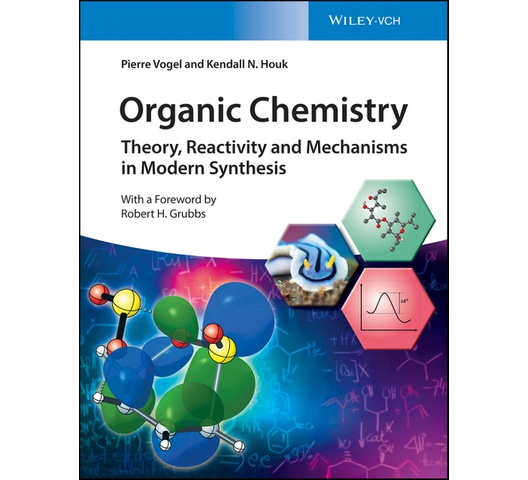
Organic Chemistry
Provides the background, tools, and models required to understand organic synthesis and plan chemical reactions more efficiently
Knowledge of physical chemistry is essential for achieving successful chemical reactions in organic chemistry. Chemists must be competent in a range of areas to understand organic synthesis. Organic Chemistry provides the methods, models, and tools necessary to fully comprehend organic reactions. Written by two internationally recognized experts in the field, this much-needed textbook fills a gap in current literature on physical organic chemistry.
Rigorous yet straightforward chapters first examine chemical equilibria, thermodynamics, reaction rates and mechanisms, and molecular orbital theory, providing readers with a strong foundation in physical organic chemistry. Subsequent chapters demonstrate various reactions involving organic, organometallic, and biochemical reactants and catalysts. Throughout the text, numerous questions and exercises, over 800 in total, help readers strengthen their comprehension of the subject and highlight key points of learning. The companion Organic Chemistry Workbook contains complete references and answers to every question in this text. A much-needed resource for students and working chemists alike, this text:
-Presents models that establish if a reaction is possible, estimate how long it will take, and determine its properties
-Describes reactions with broad practical value in synthesis and biology, such as C-C-coupling reactions, pericyclic reactions, and catalytic reactions
-Enables readers to plan chemical reactions more efficiently
-Features clear illustrations, figures, and tables
-With a Foreword by Nobel Prize Laureate Robert H. Grubbs
Organic Chemistry: Theory, Reactivity, and Mechanisms in Modern Synthesis is an ideal textbook for students and instructors of chemistry, and a valuable work of reference for organic chemists, physical chemists, and chemical engineers.
Knowledge of physical chemistry is essential for achieving successful chemical reactions in organic chemistry. Chemists must be competent in a range of areas to understand organic synthesis. Organic Chemistry provides the methods, models, and tools necessary to fully comprehend organic reactions. Written by two internationally recognized experts in the field, this much-needed textbook fills a gap in current literature on physical organic chemistry.
Rigorous yet straightforward chapters first examine chemical equilibria, thermodynamics, reaction rates and mechanisms, and molecular orbital theory, providing readers with a strong foundation in physical organic chemistry. Subsequent chapters demonstrate various reactions involving organic, organometallic, and biochemical reactants and catalysts. Throughout the text, numerous questions and exercises, over 800 in total, help readers strengthen their comprehension of the subject and highlight key points of learning. The companion Organic Chemistry Workbook contains complete references and answers to every question in this text. A much-needed resource for students and working chemists alike, this text:
-Presents models that establish if a reaction is possible, estimate how long it will take, and determine its properties
-Describes reactions with broad practical value in synthesis and biology, such as C-C-coupling reactions, pericyclic reactions, and catalytic reactions
-Enables readers to plan chemical reactions more efficiently
-Features clear illustrations, figures, and tables
-With a Foreword by Nobel Prize Laureate Robert H. Grubbs
Organic Chemistry: Theory, Reactivity, and Mechanisms in Modern Synthesis is an ideal textbook for students and instructors of chemistry, and a valuable work of reference for organic chemists, physical chemists, and chemical engineers.
KES 22,887

International delivery
Free click & collect
| UPC | 9783527819270 |
|---|---|
| Author | Pierre Vogel, Kendall N. Houk |
| Pages | 1382 |
| Language | English |
| Format | EPUB |
| Publisher | Wiley |
| SKU | 9783527819270 |
None

